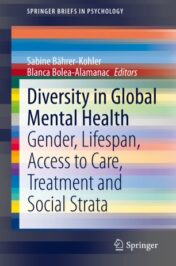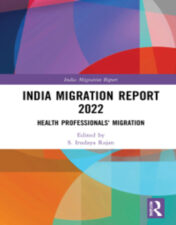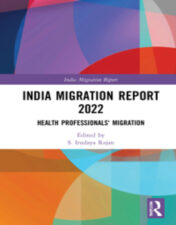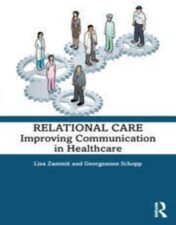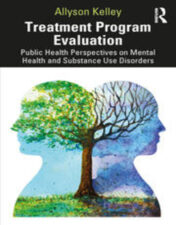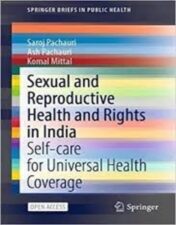Diversity in Global Mental Health(original pdf)
$16
Diversity in Global Mental Health(original pdf)
Mental illness occurs in all communities, regardless of social status, gender, race, or culture. Despite this, research in mental health historically has been biased towards Western-centric heterosexual male models of disease. Many models of service have excluded sexual and ethnic minorities and may not have been inclusive of different cultures or spiritual approaches. All of these factors may in turn isolate these communities and thus lead to an increased vulnerability to disease.
This brief explores the diversity of cultural, ethnic, social, and gender perspectives on how to achieve better mental health care for societies across the globe. The authors emphasize diversity focusing on lifespan aspects, while weaving in social, racial, ethnic, cultural, and gender perspectives. They further expand their analysis by zeroing in on prominent determinants in global mental health care, including globalization, international migration, specific population idiosyncrasies, climate change, and political context. Finally, it includes novel neurobiological and biomedical approaches to treatment, and a suggestions of how those can be implemented from the perspective of diversity and gender inclusiveness.
Diversity in Global Mental Health will be of great interest to experts and researchers in behavioral medicine, as well as practitioners and educators working in global mental health promotion and prevention of mental illness and related fields such as psychology, social policy, and public health.
Related Products
Public Health Books
Introduction to Health Behavior Theory, 4th Edition 2022 Original PDF
Public Health Books
Public Health Books
Strategic Debriefing for Advanced Simulation 2022 Original PDF
Public Health Books
Applied Machine Learning for Assisted Living 2022 Original PDF
Public Health Books
Introduction to Healthcare Quality Management, Fourth Edition 2022 epub+converted pdf
Public Health Books
Public Health Books
Public Health Books
Public Health Books
The Spine for Lawyers: ABA Medical-Legal Guides 2014 epub+converted pdf
Public Health Books
Transcend Fear: A Blueprint for Mindful Leadership in Public Health 2021 Original PDF
Public Health Books
Routledge Handbook of Health and Media 2022 epub+converted pdf
Public Health Books
Public Health Books
Public Health Books
Public Health Books
Public Health Books
Reconsidering Patient Centred Care: Between Autonomy and Abandonment 2022 Original PDF
Public Health Books
Information and Communication Technology (ICT) Frameworks in Telehealth 2022 Original PDF
Public Health Books
Legal Aspects of Health Care Administration, 14th edition 2022 epub+converted pdf
Public Health Books
The Healthcare Quality Book: Vision, Strategy, and Tools, 4th edition 2019 Original PDF
Public Health Books
Bioethics: Principles, Issues, and Cases, 5th edition 2022 Epub+ converted pdf
Public Health Books
Public Health Communication: Critical Tools and Strategies 2017 Epub+ converted pdf
Public Health Books
Fundamentals of Healthcare Finance, Fourth Edition 2022 Epub+ converted pdf
Public Health Books
Fundamentals of Healthcare Finance, Fourth Edition 2022 Original PDF
Public Health Books
Public Health Books
Public Health Books
Public Health Books
Transforming Healthcare : An Insider’s Look on Why and How 2022 Original PDF
Public Health Books
Relational Care: Improving Communication in Healthcare 2022 Original PDF
Public Health Books
Public Health Books
Emotional Design and the Healthcare Environment 2022 Original pdf
Public Health Books
Coping with the Pandemic in Fragile Cities 2022 Original pdf
Public Health Books
Pandemic Police Power, Public Health and the Abolition Question 2022 Original pdf
Public Health Books
Caste, COVID-19, and Inequalities of Care Lessons from South Asia 2022 Original pdf
Public Health Books
Local Government and the COVID-19 Pandemic A Global Perspective 2022 Original pdf
Public Health Books
Handbook of Settings-Based Health Promotion 2022 Original pdf
Public Health Books
Health Care Ethics: Critical Issues for the 21st Century 2019 Original pdf
Public Health Books
Public Health Books
Public Health Books
Observer Design for Control and Fault Diagnosis of Boolean Networks 2021 Original PDF
Public Health Books
Online Health Forums and Services: Benefits, Risks and Perspectives 2022 Original PDF
Public Health Books
Bio-Nano Interface: Applications in Food, Healthcare and Sustainability 2021 Original PDF
Public Health Books
Food, Energy, and Water Nexus: A Consideration for the 21st Century 2022 Original PDF
Public Health Books
Foundations for Health Promotion, 5th Edition 2022 EPUB & converted pdf
Public Health Books
Empathy: Real Stories to Inspire and Enlighten Busy Clinicians 2022 Epub & converted pdf
Public Health Books
Empathy: Real Stories to Inspire and Enlighten Busy Clinicians 2022 Original pdf

